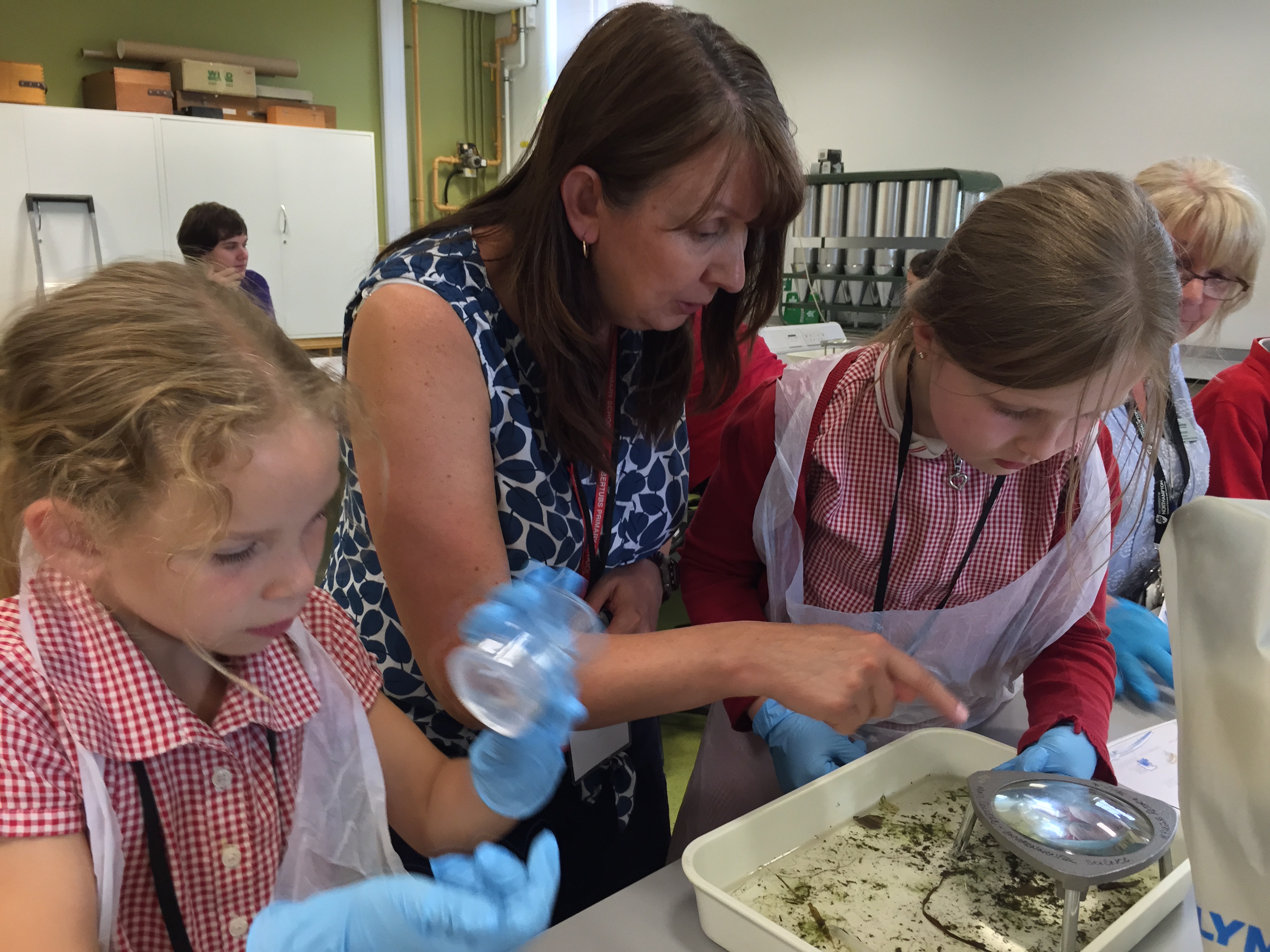From classroom to campus – University of Northampton inspiring the next generation to take up Higher Education
Date 26.09.2016

Visit the University of Northampton during the summer months and you could be forgiven for thinking you were in the grounds of a school, rather than an institute of Higher Education.
As the exam season winds down, and the last of the 13,000 students trickle away for the summer, a younger crowd descends on Park and Avenue Campuses, to take part in fun taster sessions covering subjects as diverse as engineering and popular music.
“This summer has seen around 1,200 secondary school children and 500 primary pupils come on to campus in six weeks, so it’s a huge operation,” said Linda-Davis Sinclair.
In her 14 years working at the University, Linda, who is Schools Engagement Lead, has seen the institution steadily increase its commitment to help raise the aspirations of school children across the county – with the ultimate goal being an increase in Northamptonshire school leavers progressing to university.
“The University takes its role seriously,” said Linda. “In 2015 we actually embedded a challenge into our corporate strategy to try and make Northamptonshire the best county in the United Kingdom for children and young people to flourish and learn.
“It’s an ambitious target, especially when you consider the county’s track record of A-level students who choose to study STEM [science, technology, engineering and maths] subjects falls some way behind neighbouring counties, but we will do everything in our power to try and hit it.”
The challenge has tangible targets which can be measured, including the improvement of pupil attainment at GCSE level, and an increased percentage of schools achieving Ofsted grades 1 and 2.
Close collaboration with schools, colleges and other key educational stakeholders is vital if the University is to succeed in its challenge – and in 2015 a formal structure was set up which will give it the very best chance of happening.
The Aspire Network, which is based at the University, and counts county colleges and schools amongst its members, sees partners work together in a coordinated way to raise the aspirations of Northamptonshire’s young people.
The big fixture on the Aspire Network annual calendar of events is the six-week schools programme held on both campuses, which this year attracted around 1,200 pupils from 22 secondary schools – while a further 500 pupils from 50 primaries attended a creative writing festival at the University.
Morning and afternoon sessions in subjects such as podiatry, psychology, occupational therapy, law, music, environmental science, computing, art and drama are led by University students, and are designed to spark interest in the subjects, which it is hoped, will lead to more pupils pursuing them at A-level and into Higher Education.
“The way to get school children interested in these subjects is to catch them early and then keep offering opportunities to get them re-enthused,” said John Sinclair, Dean of the Faculty of Science, Technology and The Arts.
“We hear anecdotal evidence that the young people who spend some of the summer with us have a renewed enthusiasm for these subjects and we firmly believe this will lead to solid evidence of rising standards in the county’s schools – and higher numbers of Northamptonshire’s young going on to study at university.
He added: “Science and technology subjects have never been more popular here at the University of Northampton; our full-time UK student numbers have grown from 451 in 2012, to 607 in 2015 – and September 2015 also saw our highest-ever number of new students.
“We hope our work with schools will see these numbers continue to increase over the years.”
Dr Kimberley Hill spearheads the University Psychology department’s STEM work with schools, and is convinced ‘getting them early’ is making a profound difference to raising the county’s aspirations.
“Psychology impacts all areas of our lives, yet many only get a taste of the subject within Further Education. By sharing my knowledge with primary school children, it helps to enthuse and inspire the problem-solvers of tomorrow and allow them to consider a career that they may not have been previously aware of.
“Even if you do not want to be psychologist, the valuable critical thinking and analytical skills you will receive will help you in any career, from health, policing and marketing, to education, policy and decision-making.”